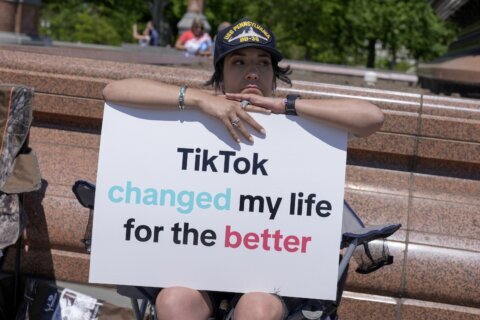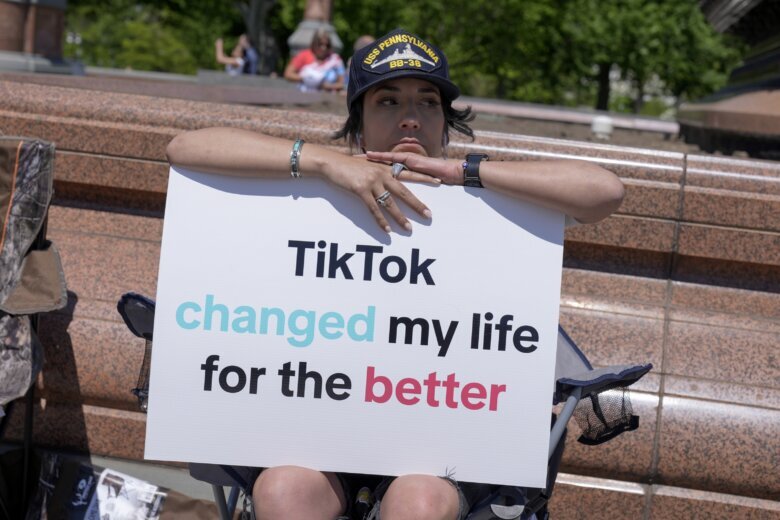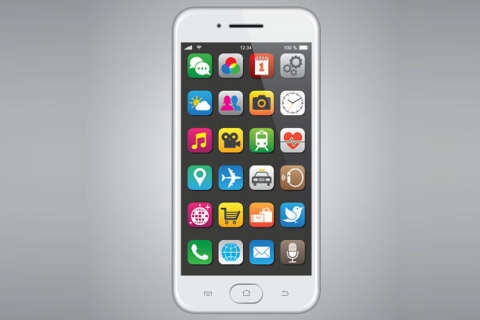
No, TikTok will not suddenly disappear from your phone. Nor will you go to jail if you continue using it after it is banned.
After years of attempts to ban the Chinese-owned app, including by former President Donald Trump, a measure to outlaw the popular video-sharing app has won congressional approval and is on its way to President Biden for his signature. The measure gives Beijing-based parent company ByteDance nine months to sell the company, with a possible additional three months if a sale is in progress. If it doesn’t, TikTok will be banned.
So what does this mean for you, a TikTok user, or perhaps the parent of a TikTok user? Here are some key questions and answers.
WHEN DOES THE BAN GO INTO EFFECT?
The original proposal gave ByteDance just six months to divest from its U.S. subsidiary, negotiations lengthened it to nine. Then, if the sale is already in progress, the company will get another three months to complete it.
So it would be at least a year before a ban goes into effect — but with likely court challenges, this could stretch even longer, perhaps years. TikTok has seen some success with court challenges in the past, but it has never sought to prevent federal legislation from going into effect.
WHAT IF I ALREADY DOWNLOADED IT?
TikTok, which is used by more than 170 million Americans, most likely won’t disappear from your phone even if an eventual ban does take effect. But it would disappear from Apple and Google’s app stores, which means users won’t be able to download it. This would also mean that TikTok wouldn’t be able to send updates, security patches and bug fixes, and over time the app would likely become unusable — not to mention a security risk.
BUT SURELY THERE ARE WORKAROUNDS?
Teenagers are known for circumventing parental controls and bans when it comes to social media, so dodging the U.S. government’s ban is certainly not outside the realm of possibilities. For instance, users could try to mask their location using a VPN, or virtual private network, use alternative app stores or even install a foreign SIM card into their phone.
But some tech savvy is required, and it’s not clear what will and won’t work. More likely, users will migrate to another platform — such as Instagram, which has a TikTok-like feature called Reels, or YouTube, which has incorporated vertical short videos in its feed to try to compete with TikTok. Often, such videos are taken directly from TikTok itself. And popular creators are likely to be found on other platforms as well, so you’ll probably be able to see the same stuff.
“The TikTok bill relies heavily on the control that Apple and Google maintain over their smartphone platforms because the bill’s primary mechanism is to direct Apple and Google to stop allowing the TikTok app on their respective app stores,” said Dean Ball, a research fellow with the Mercatus Center at George Mason University. “Such a mechanism might be much less effective in the world envisioned by many advocates of antitrust and aggressive regulation against the large tech firms.”
SHOULD I BE WORRIED ABOUT USING TIKTOK?
Lawmakers from both parties — as well as law enforcement and intelligence officials — have long expressed concerns that Chinese authorities could force ByteDance to hand over data on the 170 million Americans who use TikTok. The worry stems from a set of Chinese national security laws that compel organizations to assist with intelligence gathering – which ByteDance would likely be subject to – and other far-reaching ways the country’s authoritarian government exercises control.
Data privacy experts say, though, that the Chinese government could easily get information on Americans in other ways, including through commercial data brokers that sell or rent personal information.
Lawmakers and some administration officials have also expressed concerns that China could – potentially – direct or influence ByteDance to suppress or boost TikTok content that are favorable to its interests. TikTok, for its part, has denied assertions that it could be used as a tool of the Chinese government. The company has also said it has never shared U.S. user data with Chinese authorities and won’t do so if it’s asked.
Copyright © 2025 The Associated Press. All rights reserved. This material may not be published, broadcast, written or redistributed.








